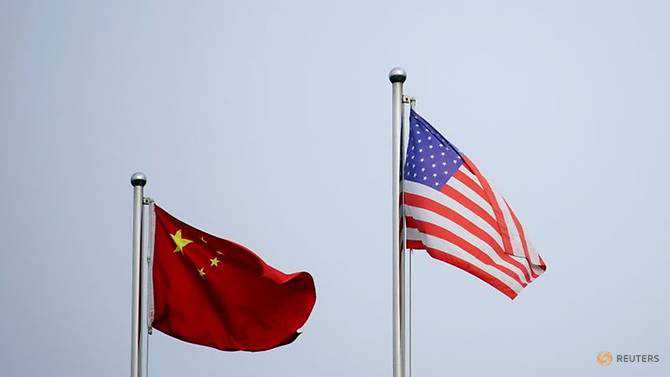Biden supply chain 'strike force' to target China on trade
09 June, 2021

The United States will target China with a fresh "strike force" to combat unfair trade practices, the Biden administration said on Tuesday, since it rolled out findings of an assessment of usage of critical products, from semiconductors to electric-vehicle batteries.
The "supply chain trade strike force," led by the US trade representative, wants specific violations that contributed to a hollowing out of source chains that may be addressed with tariffs or other remedies, including toward China, White House senior director for international economics and competitiveness Peter Harrell told reporters.
Officials also said the Department of Commerce is considering initiating a good Section 232 investigation into the national security affect of neodymium magnet imports used in motors and other professional applications, which the USA largely obtains from China.
President Joe Biden ordered the overview of critical source chains in February, requiring executive organizations to report back again within 100 times on hazards to U.S. access to critical things like those found in pharmaceuticals and rare earth minerals, that the United States is dependent on overseas sources.
Though not explicitly fond of China, the analysis is part of a broader Biden administration technique to shore up US competitiveness when confronted with issues posed by the world's second-largest economy.
"We’re trying to comprehend all of the logistics behind the supply chain” to loosen bottlenecks, Jared Bernstein, an monetary adviser to Biden, informed Reuters. “One of the better ways to do this is to speak to people in the market and we’re performing a large amount of that."
AMERICA faced serious challenges in obtaining medical equipment through the COVID-19 epidemic and today faces severe bottlenecks in several areas, including computer chips, stalling production of goods, such as for example cars.
While the White House said it really is performing closely with exclusive industry to get solutions for the shortages, officials also said companies were part of the problem.
"Decades of concentrating on labor as a cost to be managed rather than a secured asset to be committed to have weakened our domestic supply chains, undermining wages and union density for our workers," and managed to get harder for companies to find skilled skill, Sameera Fazili, deputy director of the National Economic Council, told reporters.
US agencies are required to issue more complete information a year just after Biden's buy, identifying gaps on domestic manufacturing functions and policies to address them.
TRADE WARS WITH ALLIES NOT WANTED
However the White House offered little in the form of new methods to immediately ease chip source shortages, noting in an undeniable fact sheet that the Commerce Department works to "facilitate information flow" between chip manufacturers and customers and increase transparency, a step Reuters previously reported.
In medicine, the administration will use the Security Production Act to accelerate efforts to manufacture 50 to 100 crucial drugs domestically instead of relying on imports.
And to address source bottlenecks from lumber to metal which may have raised fears of inflation, the administration is beginning a task force focused on homebuilding and building, semiconductors, transportation, together with agriculture and food.
"We fully expect these bottlenecks to be non permanent in nature also to resolve themselves over the next few weeks," said Fazili.
Semiconductors are a central focus found in sprawling legislation currently before Congress, which would pump vast amounts of us dollars into creating domestic creation convenience of the chips used in everything from gadgets to military equipment.
Biden has said China will not surpass the United States as a global leader on his look at, and confronting Beijing is among the few bipartisan issues within an in any other case deeply divided Congress.
However, many lawmakers have expressed considerations that a package of China-related bills includes huge taxpayer-funded outlays for businesses without safeguards to avoid them from sending related production or research to China.
The White House said a measure of success of the supply chain effort will be more diverse suppliers for crucial products from like-minded allies and partners, and fewer from geopolitical competitors.
"We know that as we strengthen cooperation with our allies and partners, we also need to push back against unfair trade procedures by competitor nations that contain hollowed out the U.S. professional bottom and undermine our source chain reliability," said Harrell.
Source:
